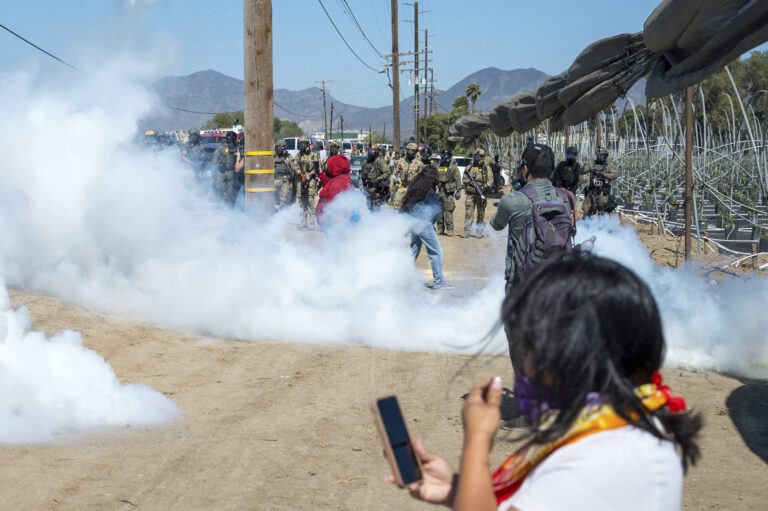California Institutions Respond to Immigration Raids with Pandemic-Style Measures
In a notable shift reminiscent of pandemic-era responses, various institutions in California are treating recent immigration enforcement actions as serious threats, encouraging both employees and community members to stay home. This approach is raising eyebrows and sparking debates across social media platforms.
Universities Transition to Online Learning
Key Developments at California State University, Los Angeles
California State University at Los Angeles (CSULA) has made significant adjustments to their academic plans in light of concerns from students regarding immigration raids.
-
Online Classes: Professors are permitted to shift classes online, providing flexibility for students who might be anxious about commuting or using public transport.
- Support for Faculty and Students: Faculty are authorized to offer additional excused absences or facilitate make-up work tailored to individual student needs.
Erik Hollins, a spokesperson for CSULA, stated, “Faculty are being supported in making case-by-case adjustments for students in extraordinary circumstances. Similarly, deans and department leads are supported in making case-by-case adjustments for faculty and staff.”
He assured that the goal remains to maintain an engaging on-campus experience when the fall semester begins.
Social Media Reactions
The decision from CSULA has led to a mix of support and backlash on social media. Critiques ranged from accusations of treating immigration enforcement all too lightly to questions concerning the demographics of the LA County residents.
-
Eric Daugherty, assistant news director at Florida’s Voice, remarked on X, “The entire LA area is basically treating enforcing immigration law like COVID!”
-
Another user commented, “Are the majority of LA county residents illegal aliens?”
- A further response highlighted concerns about political motivations, stating, “Democrats are addicted to virtue signaling.”
Community and Political Responses
Local Government and Public Safety Measures
As the federal government intensifies immigration enforcement—evidenced by recent high-profile raids, such as those at marijuana farms—community leaders are echoing those public safety sentiments previously expressed during the COVID-19 pandemic.
-
Public Announcements: Michael Vargas, the mayor of Perris, advised citizens through a social media post to “Stay at home and do not open the door to strangers,” urging residents to remain vigilant.
- DHS Reaction: In response, the Department of Homeland Security (DHS) dismissed these local narratives. A DHS representative claimed, “Elected officials choosing to fearmonger by distorting reality are doing a great disservice to our country.”
Religious Institutions Respond
In a similar vein, the Archdiocese of San Bernardino issued a decree allowing Catholics to opt out of attending Mass if they were genuinely fearful of potential immigration enforcement actions. The declaration, effective indefinitely, states it will remain in place until conditions improve.
Criticism from Federal Authorities
This proactive stance from various institutions and local governments has drawn sharp criticism from Trump administration officials. Tom Homan, the former border chief, labeled the actions as “BS,” emphasizing that he was unaware of any incidents where individuals were arrested at religious services.
Homan maintained, “I do not know of a single incident of a church arrest.”
Conclusion
The unfolding situation in California reveals a complex intersection of law, community response, and public safety. As institutions opt for measures reminiscent of pandemic responses—a trend likely to continue—both supporters and critics are vocalizing their opinions. For more in-depth coverage on immigration enforcement and community responses, visit U.S. Immigration and Customs Enforcement and California State University.
Related Resources
This evolving narrative highlights the delicate balance between upholding the law and ensuring the safety and well-being of communities in California.


